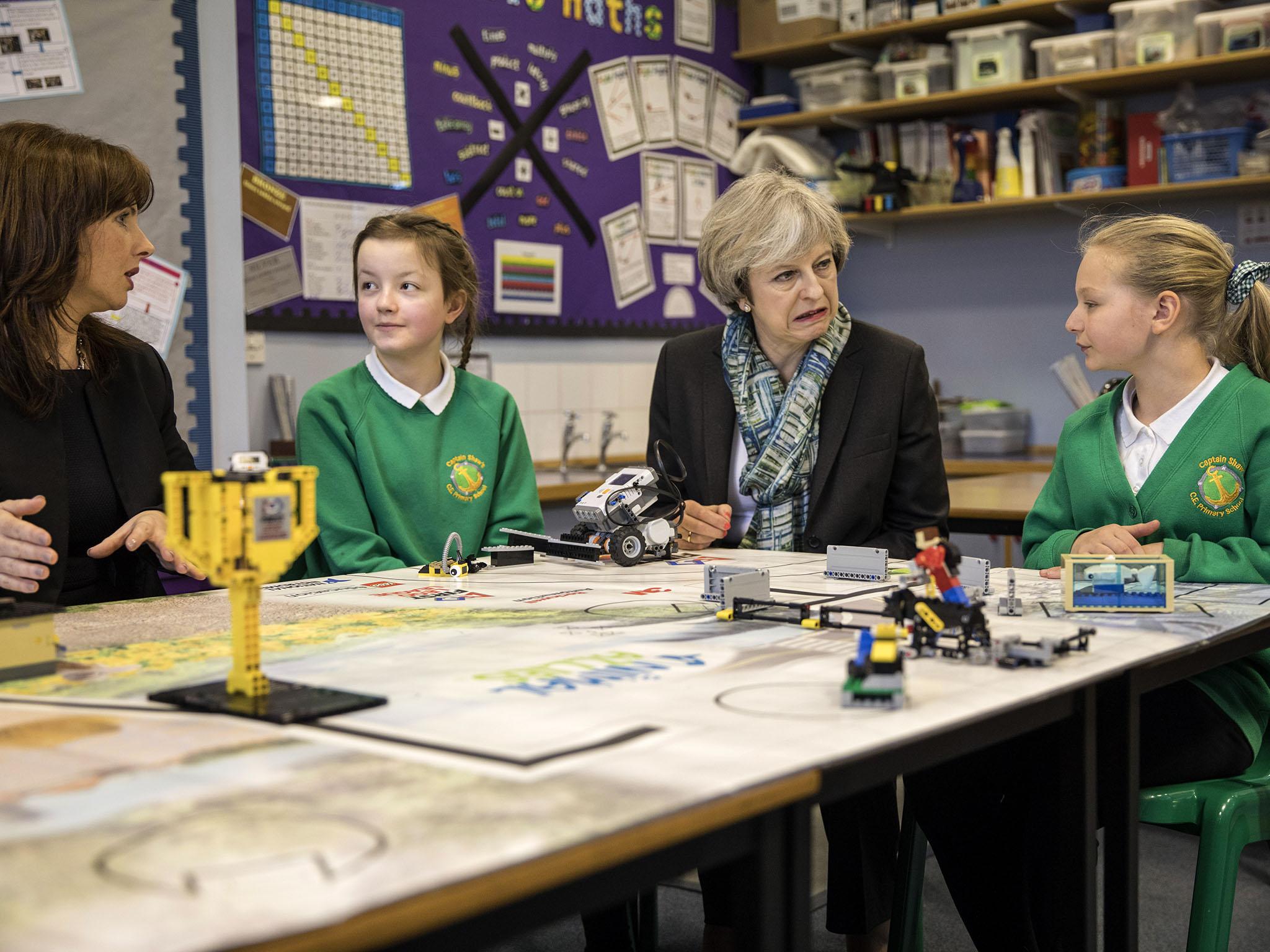At a time when social cohesion is needed more than ever, the Tories' pledge to ghettoise religious schools is shocking
If the Government really values children knowing each other better, then why not have them in class together?

Your support helps us to tell the story
From reproductive rights to climate change to Big Tech, The Independent is on the ground when the story is developing. Whether it's investigating the financials of Elon Musk's pro-Trump PAC or producing our latest documentary, 'The A Word', which shines a light on the American women fighting for reproductive rights, we know how important it is to parse out the facts from the messaging.
At such a critical moment in US history, we need reporters on the ground. Your donation allows us to keep sending journalists to speak to both sides of the story.
The Independent is trusted by Americans across the entire political spectrum. And unlike many other quality news outlets, we choose not to lock Americans out of our reporting and analysis with paywalls. We believe quality journalism should be available to everyone, paid for by those who can afford it.
Your support makes all the difference.There is a highly controversial proposal in the Conservative Party manifesto that is in danger of being overlooked amid discussions about Brexit, social care and grammar schools.
It seeks to overturn the admissions cap that was established for all new state-funded faith-based Academy Schools, which prevented them from selecting more than 50 per cent of their pupils on the basis of their faith.
This original cap was a highly progressive measure introduced in 2010 by the Conservatives themselves, when Michael Gove was Secretary of State for Education. Its aim was to stop new faith schools becoming religious silos consisting of children from one faith only, isolating them from the rest of society.
There are many who would have preferred there to be no faith-based admissions at all. It would be unthinkable to admit children on the basis of their skin colour, so why is selection based on their religious affiliation any less discriminatory?
Nevertheless, the 50 per cent cap was an advance from the previous structure of Voluntary Aided faith schools, who faced no limit on pupil selection by faith. Although the cap applied only to new schools, it signalled that the government was aware of the detrimental social impact of having mono-faith schools and was trying to address it. The great hope was that the cap would be extended to existing faith schools.
The Conservative proposal to reverse their own measure is deeply puzzling. Why is it consciously dividing children by faith at a time when what is needed is integration rather than segregation? Why is it reverting to an educational apartheid system when we could be opting for a more cohesive landscape?
The justification for taking such a regressive step was that the cap was preventing Catholic schools from opening, as their own rules forbid Catholic bishops not to prioritise the admission of Catholics pupils.
Even if this was true, which has since been contested, why should Catholic rules determine government policy for state schools? And what about repeated Catholic claims that they are open to others? Moreover, abolishing the cap will affect all faith schools, not just Catholic ones. Does the Government want to encourage Jewish, Sikh, Hindu and Muslim schools to be totally inward-looking?
The Government claims there will be steps to encourage co-operation, but the suggested measures are so flimsy that they will have no effect. “Twinning arrangements” between schools of different faiths, for instance, sounds good, but is undefined. An occasional football match or arts day is hardly enough to make an impact, while schools that want singe-faith entry will not invest much time in multi-faith bonds. If the Government really values children knowing each other better, then why not have them in class together?
As someone who takes faith seriously, I opted not to send my children to a Jewish school, but to a community one, so that they could sit next to a Christian child, play football during break time with a Muslim child, do homework with a Hindu child and walk back with an atheist child. It is only by mixing together regularly that mutual knowledge and trust can develop. Religious identity should come from the home, and religious education from services and Sunday school, but not divide them from each other Monday to Friday.
It seems this view is the national view too, for a poll just commissioned via Populus by the Accord Coalition for inclusive education revealed that 80 per cent of respondents thought that the 50 per cent cap should be maintained in the interests of social cohesion. Even more telling was that this overwhelming opinion was held almost as strongly by those who had a religious identity: 77 per cent of all Christians, including 67 per cent of Catholics.
The key question is what sort of society do we want? If it is an open, tolerant, and inclusive society then we have to have an open, tolerant, and inclusive school system that produces it. Theresa May has already made “clarifications” to her social care policy, maybe she should think again about current plans to turn schools into religious ghettos.
Rabbi Dr Jonathan Romain is chair of the Accord Coalition for inclusive education
Join our commenting forum
Join thought-provoking conversations, follow other Independent readers and see their replies
Comments